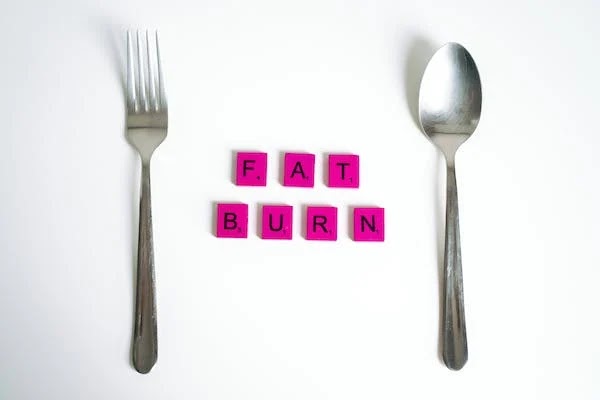Can you lose weight using diet pills ? Can Weight-loss pills help ?| Health Tips
Everyone knows that a combination of diet and exercise is the primary way for many people to lose weight. But many of us have tried it again and again, with no lasting success. Still, we know it's important to shed extra pounds, both for our physical health and our state of mind. Can diet pills help us achieve our goals?
Medications can help treat obesity, but they are not a magic bullet that will allow us to shed pounds effortlessly. A small minority of people find them a useful addition to a diet and exercise program. In a study of 2,800 people who lost at least 30 pounds and kept it off for more than a year, only 4 percent did so using medication. Another approach is to lose weight and take medication to help keep the weight off.
I've seen people get short-term help from diet pills, but the weight tends to come back on—despite my best intentions and efforts to maintain my hard-won weight loss.
More Read : Have you recently worked out your body fat ? How fit is your body fat ? | Weight Loss Tips
I compare this phenomenon to a person who is diagnosed with high blood pressure and put on medication to lower it. It works, but don't expect your blood pressure to stay low when you stop taking the medication! Our bodies have a strong maintenance system that is difficult to overcome, even if it is sometimes not in our best interest.
It's also important to remember that no drug works for all people—just as one drug rarely works to control everyone's blood glucose or blood pressure.
Although today's weight loss drugs are not very effective, I believe that better drugs will emerge in the future - allowing doctors to target drugs to individuals, as they do with, say, cholesterol drugs. As mentioned above, it is likely that these drugs will need to be taken long-term.
Limited prescription options
The Food and Drug Administration, or FDA, treats obesity medications differently than other medications. There are only two prescription drugs that are approved by the FDA for long-term use for weight loss (several others are only approved for short-term use of a few months). Both longer-term drugs are recommended only for people who are significantly obese.
Sibutramine (trade name Meridia) affects serotonin and other neurotransmitters and speeds up metabolism. People claim to feel full and energized. Since it can raise blood pressure, it should not be used by those who already have hypertension, and those who take the medication should have their blood pressure checked frequently.
The treatment must also be avoided by people with heart disease, stroke and heart rhythm disorders and must not be used in combination with decongestants, bronchodilators (used for asthma) or MAO inhibitors (medicines for depression). Not particularly effective in the long run. The FDA found undeclared and unapproved sibutramine in some specific dietary supplements, leading to a voluntary recall.
More Read : How to stay fit and healthy ? How to make a plan to stay in shape and healthy ? | Health Tips
Orlistat (trade name Xenical) has helped people achieve only moderate weight loss in studies. It blocks the action of lipase, an enzyme in the gut that breaks down fat. As a result, 30 percent of the fat eaten is not absorbed and is excreted in the stool. It sometimes causes gastrointestinal distress, including a lot of gas, oily discharge, and frequent bowel movements.
The FDA has also approved this drug in a lower dose for over-the-counter use by adults (under the brand name Alli). It was the first and only over-the-counter diet drug to receive agency approval.
Beware of over-the-counter products
There are many over the counter weight loss medications. But let the buyer beware! Medicines are medicines regardless of whether they are herbal, "natural" or under the jurisdiction of the FDA.
If you try any of these alternatives, I recommend that you do so with caution. Do not combine them with each other or with other medications, and most importantly, discuss them with your doctor. Many of these can have a profound effect on your health in ways you might not have anticipated. Some just don't work, despite the testimonials where people are paid significant amounts of money to lose weight.
Here are some common—or once common—over-the-counter diet aids, including those that are now restricted:
PPA, also known as phenylpropanolamine, used to be a component in decongestants. It has a light appetite suppression effect, however it often wears off quickly. It can raise blood pressure and raise the risk of stroke, hence it should never be used with other decongestants. After studies showed a link between PPA and an increased risk of stroke, it is no longer available over-the-counter in the United States.
Ephedrine, ephedra or ma huang, part of adrenaline. It can cause rapid heartbeat, increased blood pressure, and even psychosis and seizures. Several deaths attributed to its use have been reported. Do not use these products! After the FDA banned PPA, many diet pill manufacturers reformulated their products with fenugreek. However, dietary supplements that contain fenugreek have been banned in the US since April 2004 after the FDA ruled that fenugreek posed an unreasonable risk to those who took it.
More Read : Why you are gaining weight ? What's with the weight gain? | Weight Loss Tips
Chitosan, a shellfish ingredient touted as a "fat catcher." I wouldn't waste your money on this one: I've published three different studies that show the only thing it traps is your money. For example, one study suggested that it would take more than seven months for the effects of chitosan to shed pounds of body fat. No fat was captured in women.
Herbal teas used for weight loss that typically have laxative components. They may eventually result in chronic discomfort and constipation. The use of them to urinate becomes addictive. For "weight control," the Chinese drank roughly 1 ½ liters of strong Oolong tea per day.
Exercise is essential , no matter what
While drugs may be part of the solution to a weight problem for a few people, there is one method I would recommend to everyone: exercise. Without it, it is almost impossible to maintain weight loss. And regardless of one's weight, there are many other health benefits it provides. Start:
- Set your own goals.
- Try to work out five or six days per week.
- To help, wear a pedometer and record how many steps you take each day. A good weekly goal is about 15,000 steps in seven days.
- If you walk 3,000 steps a day, add another 500 steps each week until you reach your goal.
Don't give up easily. When you start exercising regularly, you'll understand why it's one "pill" you'll want to take for the rest of your life.
Finally, losing weight is not for everyone. You can be healthier by being physically active and eating a healthy diet—fruits, vegetables, whole grains, lean fish, meat or tofu, and foods high in calcium such as dairy). Bet on fried foods.
More Read : Is Milk really the ideal food ? What are the benefits of Milk ? Who can't eat milk ? | Nutrition
And… there are some foods you love that you might not want to give up while you're watching your weight. It may be necessary to eat them in limited quantities. For example, I believe that chocolate is an "honorable vitamin" and I need to have some a day in order not to be "deficient". The key, of course, is moderation - you'll have to program yourself to have just a little bit.

.jpg)




.webp)
